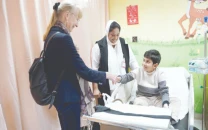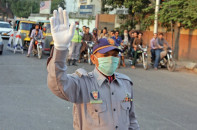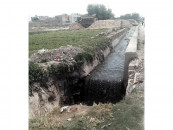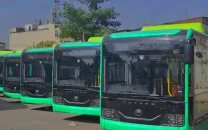Ehsaas initiative earns UN’s praise
World body describes programme as international best practice

Pakistan’s Ehsaas programme has been featured as an international best practice in the recently released edition of the UN Principles for Responsible Digital Payments 2021 report.
According to the UN’s report, Ehsaas simplified the know-your-customer procedure for users by collecting simple data fields and issuing accounts after basic verification. Incentivised 500,000 branchless banking agents to work with the programme by reducing taxes on commission earned from beneficiaries, thereby increasing doorstep banking services to the elderly, persons with disabilities and women.
“Glad to see Pakistan’s Ehsaas continue to be lauded as international best practice by the UN as it looks to accelerate Responsible Digital Payments to advance developmental progress,” Special Assistant to the Prime Minister on Poverty Alleviation and Social Protection Sania Nishtar said in a tweet.
Ehsaas programme emerged as the largest social protection programme in the history of the country in times of the Covid-19 pandemic last year by benefiting almost half of the country’s population.
Read More: Ehsaas scholarships
The Rs179 billion Ehsaas Emergency Cash programme provided a one-time cash grant of Rs12,000 to 15 million families (nearly 109 million people) at risk of extreme poverty. This year as well, one million eligible families are being paid Ehsaas cash.
To deliver Ehsaas Emergency Cash, digital capabilities established as part of Ehsaas were adapted, in particular, a new biometric payment system, a demand-side SMS based request seeking platform and a new wealth profiling big data analytics mechanism.
The digitally-enabled payment system fully relied on the use of mobile phones and biometric verification to strengthen the link between government assistance and social protection.
Ehsaas Emergency Cash payments were made through branchless banking platforms of two commercial banks (in retail settings and specially established payment campsites) and their 1,800 biometrically enabled ATMs. The available cash-out points in 2,270 campsites were more than 11,500.
Provincial governments and their security apparatus were responsible for logistic arrangements on the ground at the payment campsites to coordinate payments in over 2,270 locations across the country, covering an area of over 881,000 square kilometres.
Money was deposited in limited mandate accounts and individuals were able to draw the money after biometric authentication in real-time.
The UN Principles for Responsible Digital Payments advocate for responsible practices in the digitisation of payments. These principles have been developed by the United Nations-based better than Cash Alliance, guided by its member governments, companies and international organizations. This flagship resource responds to the UN Secretary General’s Roadmap for Digital Cooperation.



















COMMENTS
Comments are moderated and generally will be posted if they are on-topic and not abusive.
For more information, please see our Comments FAQ